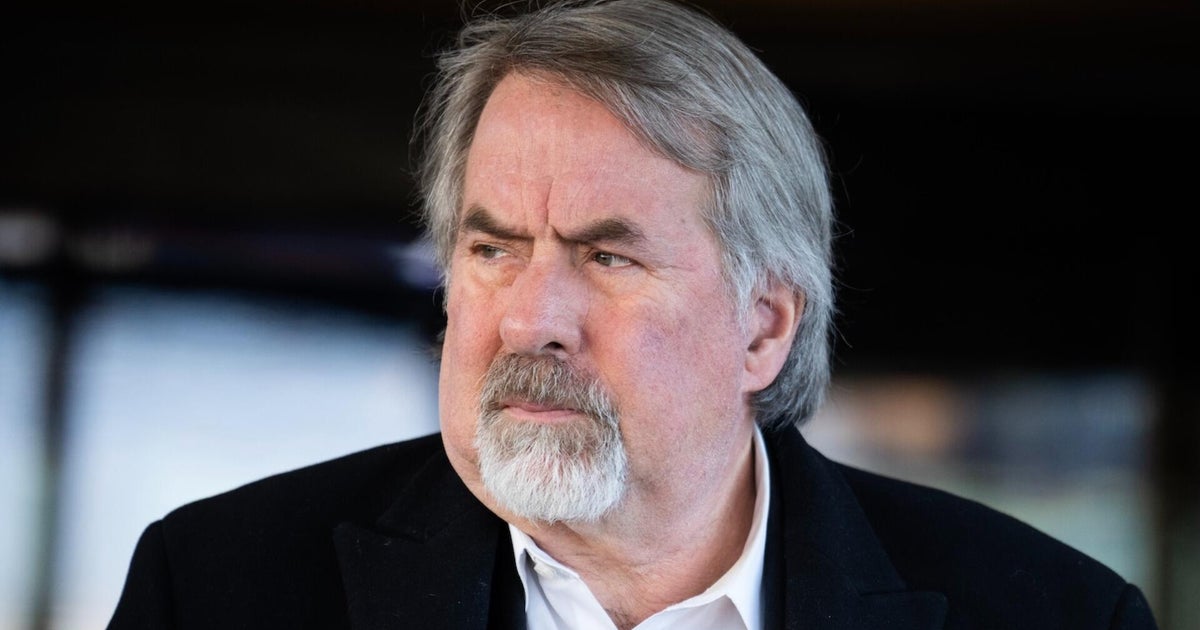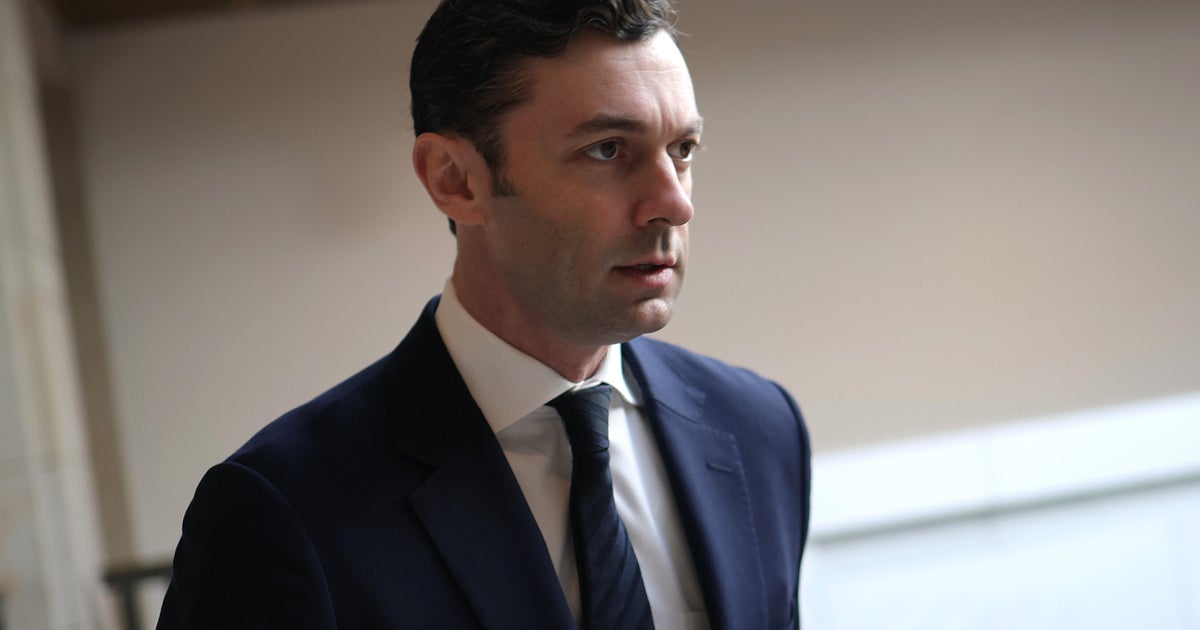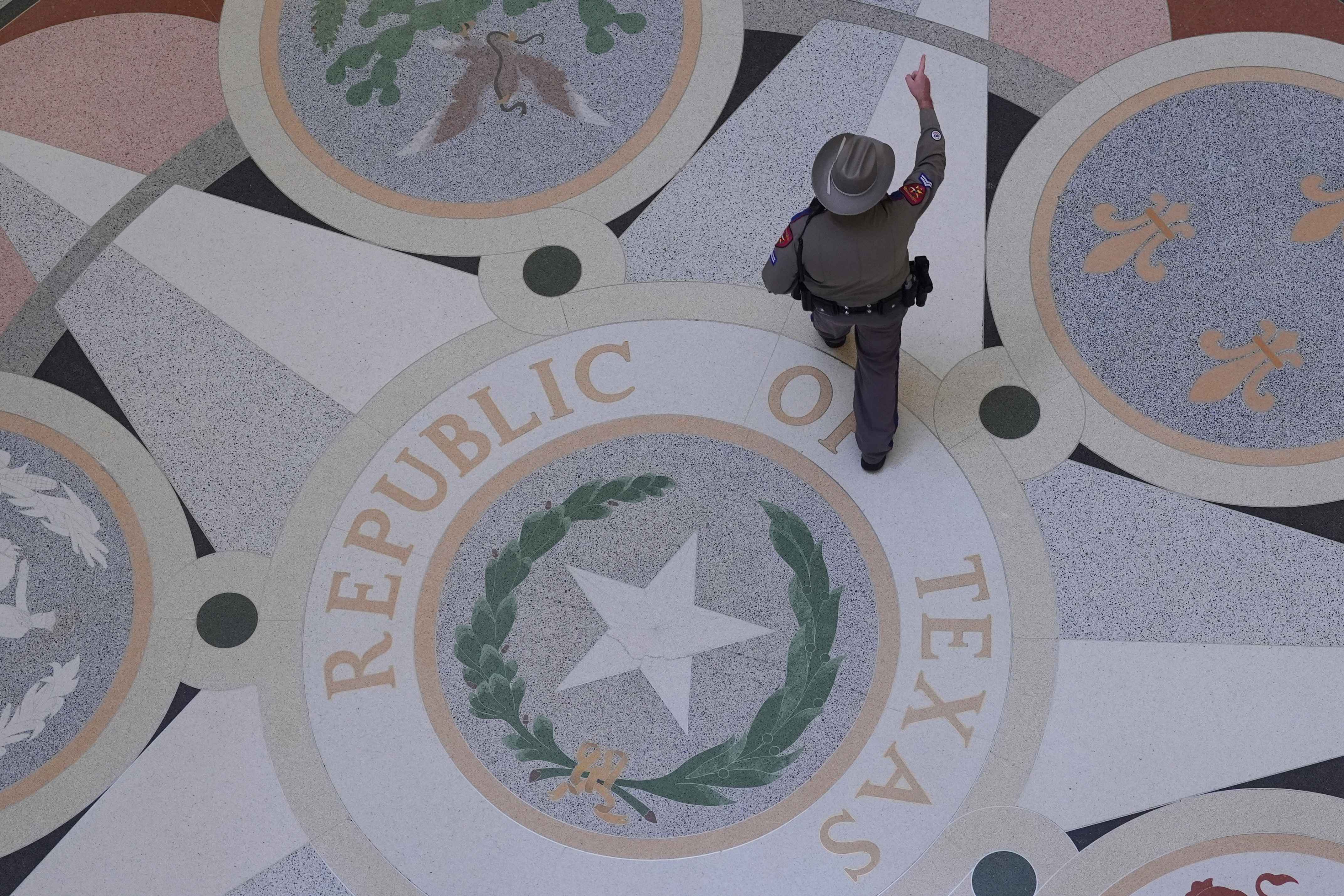Two Senate seats up Mississippi in 2018, as GOP defends slim majority
Republicans suddenly find themselves defending two seats in Mississippi this year as they try to maintain their slim majority in the U.S. Senate.
Republican Sen. Roger Wicker is already up for re-election in the deeply conservative state. And 80-year-old Republican Sen. Thad Cochran announced Monday that he is resigning April 1 because of poor health.
Cochran is just over halfway through a six-year term. Republican Gov. Phil Bryant will appoint someone to temporarily succeed Cochran, and a special election will be in November — the same day as the regular election for the seat Wicker now holds. The winner of the special election will serve until January 2021.
Democrats are running for the Wicker seat, and the open seat is expected to attract several candidates from both parties. Democrat Mike Espy, President Bill Clinton's first agriculture secretary, says he has a "strong intention" to run. In 1986 he became the first African-American in modern times to win a congressional seat in Mississippi.
Cochran's departure set off a scramble within a state Republican Party already struggling to manage a disaffected conservative faction. Chris McDaniel, the outspoken, tea party-backed state senator who came close to defeating Cochran in a bitter 2014 Republican primary, qualified last week to challenge Wicker but said he might jump to the special election if the Cochran seat is open. McDaniel said Monday it is "premature" to say what he will do.
Republicans in Washington are hoping to prevent a rough and costly primary season as they struggle to defend their 51-49 hold on the Senate. Some Republicans have doubts about McDaniel's ability to win a general election. And after Republicans' bruising loss in Alabama last year, party leaders are eager to block any risky candidates.
Cochran has been a sporadic presence on Capitol Hill in recent months. He stayed home for a month last fall, returning to Washington in October to give Republicans the majority they needed to pass a budget plan. He has since kept a low profile and an aide ever present at his side.
"I regret my health has become an ongoing challenge," Cochran said in a statement. "It has been a great honor to serve the people of Mississippi and our country. ... My hope is by making this announcement now, a smooth transition can be ensured so their voice will continue to be heard in Washington, D.C."
Cochran was first elected to the Senate in 1978 after serving six years in the House. A mild-mannered Southerner, Cochran came to the Senate when it had a far clubbier atmosphere and he played an insider's game throughout his seven terms — particularly as a member of the powerful Appropriations panel, which had long been a bipartisan powerhouse and way to funnel taxpayer dollars back home.
Cochran chaired the committee twice and used the post to channel money to Mississippi and other Gulf Coast states for Hurricane Katrina recovery after the 2005 storm.
"Thad knows there's a big difference between making a fuss and making a difference. And the people of Mississippi — and our whole nation— have benefited from his steady determination to do the latter," Senate Majority Leader Mitch McConnell said in a statement.
"I'm devastated. I assumed we would serve out our time together here," said Sen. Patrick Leahy of Vermont, the top Democrat on the Appropriations panel. "We've never once had a partisan word between us. And he has always, always, always kept his word — and I wish to heck some other senators around here would learn to do that."
But the old-school Cochran has seemed increasingly out of place in a chamber where partisan elbows are sharper.
Explicit earmarks for home-state projects such as roads and bridges, economic development grants, and help for schools such as Cochran's alma mater, the University of Mississippi, were banned in 2011.
In 2014, he struggled to win a Republican primary over McDaniel, who received financial support from libertarian-leaning groups that criticized Cochran as a big spender.
That race grabbed national attention after a McDaniel supporter entered a nursing home without permission and photographed Cochran's wife, Rose, who was bedridden with dementia. Images of her appeared briefly online in a video that attempted to show Cochran was having an inappropriate relationship with one of his longtime staff members, Kay Webber — an accusation he denied. McDaniel said he had no connection to the incident.
Rose Cochran died in December 2014. Thad Cochran married Webber in a private ceremony in May 2015.
Wicker said Monday he and his campaign haven't communicated with McDaniel about which seat he'll seek. Asked if he's relieved because McDaniel might seek the open seat instead of challenging him, Wicker said, "I don't know that." He smiled as he answered the question and told reporters, "I'm smiling because of your persistence."
The Mississippi race was also being eyed by former White House strategist Steve Bannon, who at one point warned of the challenges to GOP incumbents he felt were insufficiently supportive of President Donald Trump.
That effort may have waned, however. Senate Republicans suffered a stunning setback in December when neighboring Alabama elected a Democratic senator, in a special election, for the first time in a generation. Bannon backed Republican Roy Moore, who was accused of sexual impropriety against young women.
Mississippi's governor has not released names of people he will consider appointing to temporarily fill Cochran's seat, though there has been widespread speculation that he might appoint Lt. Gov. Tate Reeves or Secretary of State Delbert Hosemann, both Republicans.
Bryant has not said whether he would consider appointing himself to the Senate. He has told some in the GOP that Trump and McConnell have urged to appoint himself, according to one Republican who spoke on condition of anonymity in order to discuss private conversations.
Bryant is limited to two terms as governor, and his time in that job ends in January 2020. Bryant campaigned for Trump in 2016, and has been to Washington many times in the past year to meet with the president.





